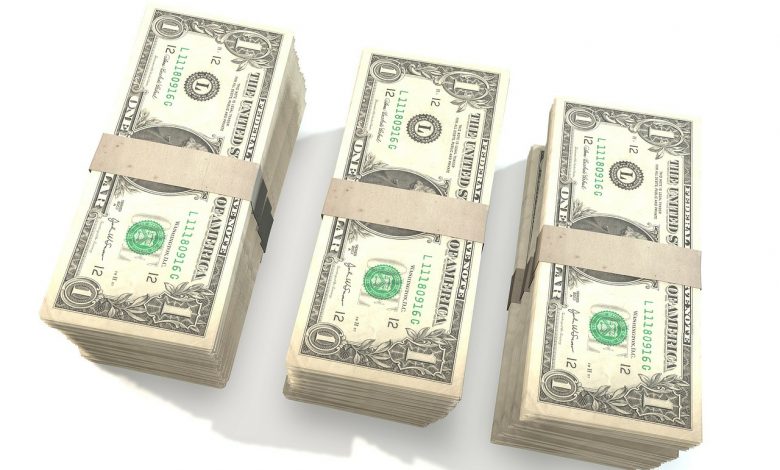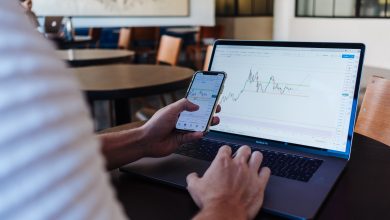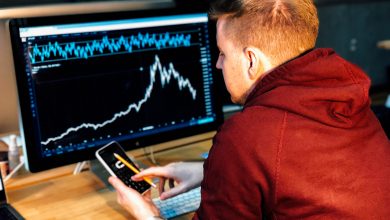Will the Dollar Be Replaced as the World’s Reserve Currency?

For decades, the US dollar has served as the world’s primary reserve currency. However, the dollar was not always in the premier spot amongst the world’s currencies, surpassing the pound sterling in the twentieth century. With today’s changing economic environment and shifting global sentiment, other currencies are also gaining influence in the reserve currency arena. With that in mind, what countries are making moves, and what other options might there be?
The Yuan
The world’s second largest global economy, China, has been rapidly gaining in economic power since the 1980s, growing at an average annual rate of almost ten percent. The country’s currency, the yuan, rose from the thirteenth-most-used currency in 2012 to the fifth most prolific currency in just three years, surpassing the Swiss franc, Canadian loonie, and Australian dollar. Due to the yuan’s increased use in international trade and subsequent increased influence, in 2016 the International Monetary Fund awarded the yuan reserve currency status.
In order to service the yuan’s increased usage and encourage the use of the yuan in trade, China has set up trading hubs for the renminbi around the world. (Note: While there is a subtle technical difference between the renminbi and the yuan, the terms are used interchangeably to refer to China’s national currency.) The Renminbi Trading Hub for the Americas opened up for business in Toronto on March 23rd, 2015. The London trading hub, meanwhile, is the biggest renminbi exchange outside of China, processing over $73 billion in transactions daily – more than thirty-six percent of the renminbi’s global volume. While other hubs post much lower transaction volumes, trading hubs for China’s currency also operate in other areas across the globe, like Singapore and France.
In the USA, former New York mayor Michael Bloomberg along with US Treasury Secretaries Hank Paulson and Tim Geithner have created an official working group assisting in stateside renminbi trading and clearing, while as of 2018, China has designated two banks with clearing status – J.P. Morgan Chase and the Bank of China in New York. In addition to trade, the level of international investment being conducted in Chinese yuan is increasing the currency’s influence as well. Limitations on investment, such as the previous $38 billion cap on the Renminbi Qualified Foreign Institutional Investor program, have been lifted. Meanwhile, in London, “[…]policymakers are moving towards a broader view and see London as a place for introducing Chinese capital markets to foreign investors.”
In addition to other moves intended to increase use of the yuan – such as launching oil futures denominated in yuan, and increasing the number of bilateral currency-swap agreements through its Belt and Road Initiative – several major central banks around the world have also started to increase the amount of yuan they hold in reserves.

Special Drawing Rights
“Special drawing rights,” or SDR, could be described simply as the “currency” of the International Monetary Fund. It is not, however, technically a currency, but rather represents a unit of value based on a basket of strong national currencies – somewhat similar to how an index fund works. Currently, the International Monetary Fund’s SDF is backed by the US dollar, the Euro, the Chinese yuan, the Japanese yen, and the pound sterling. It is also weighted in that order. Every five years, the IMF evaluates the global economy and restructures the types of currencies, or weighting of each, according to its importance in international trade and finance.
The SDR, because of its diversification, is viewed by some to be the ideal candidate to serve as the primary global reserve currency. Neither politically nor economically swayed by a single country, calls for use of the special drawing rights for settlements have increased, particularly since the global financial crisis.
In 2009, the Governor of the People’s Bank of China petitioned the Bank of International Settlements for broader use of the SDR. Institutions, such as the Peterson Institute for International Economics, have suggested that diversifying responsibility for the global financial system may help reduce imbalances from countries selling debt (or bonds) to create supply. The fact that the SDR is less volatile compared to any single currency is also what makes it a preferred unit of account for large organizations working in developing nations, such as the African Development Bank, Bank of International Settlements, and Arab Monetary Fund.
In a decade that has seen the phrases “currency war,” “currency devaluation,” and “currency manipulator” thrown around left and right, the special drawing rights, concurrently, offer a solution freer from finger pointing. The IMF itself suggests that a reformed system such as the use of SDRs could help minimize risks in the current system, though it simultaneously acknowledges that the successful use of the SDR as a system would require increased global cooperation that may or may not materialize.
Vying for position as a reserve currency, and capturing the benefits that go with it, has been an exercise for countries for centuries. While the dollar is unlikely to be usurped anytime soon, the constantly shifting landscape of global economics – including the recent rise of China and the yuan, as well as new proposed solutions such as special drawing rights or even digital currency – is only ever certain, whether slowly or rapidly, to change.

Definitions of terms used in this article:
- Reserve currency: “One of the national currencies (dollar, euro, yen, etc.) or IMF’s special drawing rights (SDR) used by a country to hold its foreign currency reserves and gold for settling international trade transactions and other obligations.” (BusinessDictionary)
- Yuan: “(CNY or ¥) The currency unit of the Republic of China.” (Investor Words)
- Special drawing rights: “International financing instrument created in 1970 by the International Monetary Fund (IMF) to coincide with the disfavor of the US dollar as the principal currency of the world trade.” (BusinessDictionary)
- International Monetary Fund: “UN specialized agency established in 1944 under Bretton Woods system to help prevent unstable exchange rates and competitive devaluations of pre-Second World War Western economies.” (BusinessDictionary)



